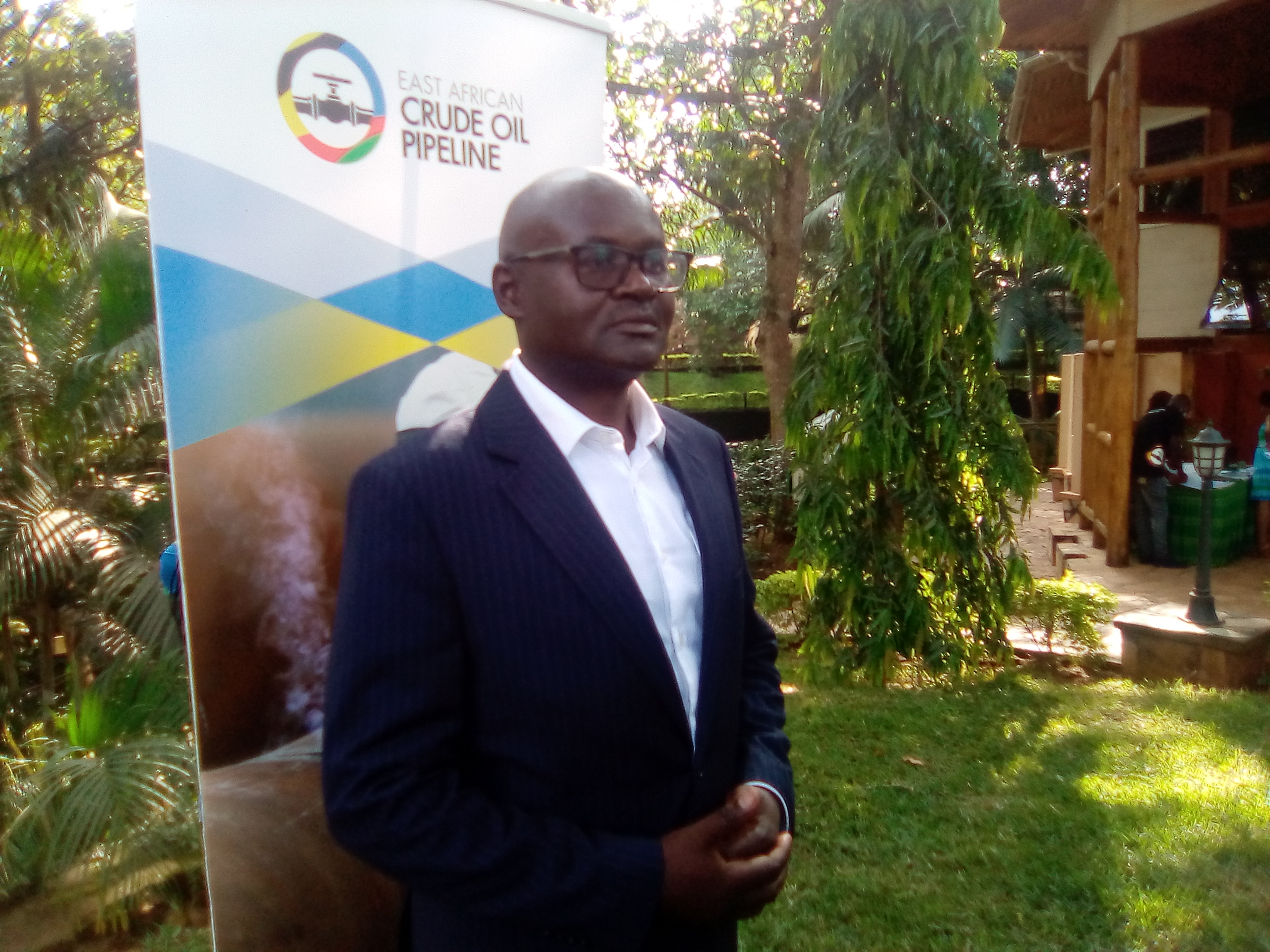KIKUUBE– The Deputy Managing Director of the East African Crude Oil Pipeline [ EACOP ], John Bosco Habumugisha has expressed concern over a group of environmental activists from European countries who are fighting against the development of the pipeline project.
He noted the EACOP is one of the facilities which will facilitate the Ugandan government to extract her oil resource from the ground and also help the country to hit the target of having the first drop of oil from the ground by 2025.
The petroleum deposits discovered in Uganda so far are estimated at 6.5 billion barrels, of which 1.4 billion barrels are considered recoverable.
The implementers of EACOP projects are the Governments of Uganda and Tanzania (represented by Uganda National Oil Company [UNOC] and Tanzania Petroleum Development Corporation [TPDC] respectively], and the joint venture companies TotalEnergies and China National Offshore Oil Corporation [CNOOC].
In Uganda, Shs 12 trillion pipeline covers 296km long and runs through 10 districts and 25 sub-counties. In Tanzania, the pipeline, 1,147km long, will traverse 8 regions and 25 districts. The crude oil pipeline will start from Kabaale, Hoima in Uganda to Chongoleani, Tanga in Tanzania.
A total of 5,300 hectares of land will be needed for the construction and operation of the pipeline, which means that around 13,000 households will lose land through compensation by the government and oil companies.
Under the project, Uganda and Tanzania are going to invest 30 percent while Total Energies has 62 percent and CNOOC has 8 percent of the total cost of the project. The project period is three years.
Habumugisha observed that all those against the project are enemies of the development of Uganda and African Countries and appealed to them to back off the project.
He noted the African continent is facing the challenge of ‘energy poverty’ and that there is a need for developing countries to support their efforts geared at developing their resources.
This comes at a time when a section of environmental and climate activists are calling on international countries not to fund the project on the allegation that the EACOP project is going to have a diverse effect on the environment because of nonadherence to environmental protection laws by the implementers.
Recently, a Twitter video went viral where a 20-year-old student from Poland who is a climate and social justice activist and others surrounded French President Emmanuel Macron and demanded that he publicly denounces the EACOP and stop all the plans of giving the financial support to the project.
In this video, the French president was heard saying that he stopped public funding for such fossil fuel projects. TotalEnergies, which is the main funder of the project is from France.
While reacting to voices of the activists Habumugisha said that they are not worried, adding that much as activists are posing a threat to the progress of the project, they are going forward.
“We are not worried because there are many partners globally that understand the need for developing Africa and President Macron was very clear. He said that he has no commissioned public funds for the project and that TotalEnergies is a private company over which he has no powers.”
Habumugisha explained that appropriate policies and regulations have been put in place through the Petroleum Authority [PAU] aimed at conserving the environment and climate.
The Environment Social Impact Assessment [ESIA] prepared by an experienced team with extensive pipeline engineering,environmental and social impact assessment knowledge, including Ugandan partners with
expertise in ESIA development in the Ugandan oil and gas sector okayed the project and was approved by the National Environment Management Authority [NEMA] in December 2020.
The construction of the pipeline will lead to a substantial rise in Foreign Direct Investment (FDI) for both countries.
The pipeline will further unlock East Africa’s oil potential by attracting investors and companies to explore the potential in the region.
Employment Creation
The pipeline will create short-term [2-3 years]employment for both highly skilled and, semi-skilled professionals, and casual laborers. It is expected that casual workers who will be involved in the construction phase of the project will be sourced locally from each district, thus promoting the development of local capacity to develop other pipeline projects in the region.
Business Opportunities
The pipeline will also provide business opportunities for the different sectors of the economy involved in the pipeline design, construction, and operation and decommissioning of the project, and create a trickle-down economic effect spurring the development of local content.
Legal Framework
The Inter-Governmental Agreement between Uganda and Tanzania was signed during May 2017 and Foundation Stones for the EACOP were laid both in Tanga and Hoima during August 2017 and November 2017 respectively.
Negotiations of the Uganda Host Government Agreement (HGA) for EACOP between the Pipeline Project Team and the Government of Uganda commenced in February 2018 and were concluded in September 2020. Subsequently, negotiations for the Shareholders Agreement (SHA) and the Transportation and Tariff Agreement (TTA) were also finalised. This culminated in the signing of the Uganda HGA, SHA and TTA on 11th April 2021, hence the launch of Uganda’s oil and gas projects.
https://thecooperator.news/eacop-uganda-tanzania-sign-security-pact/
Buy your copy of thecooperator magazine from one of our country- wide vending points or an e-copy on emag.thecooperator.news
